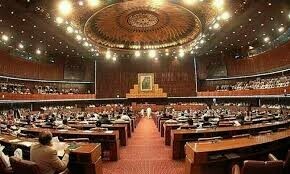THE US Federal Reserve shocked the world last Wednesday with the decision to, well, keep doing what they’ve been doing for a year now.
That is, the central bank is buying $85 billion in bonds every month, and will keep buying $85 billion a month for now.
So, the money will keep flowing, the ‘taper’ is postponed for another day, and the stock market is euphoric. But why? One reason is that interest rates have risen in global financial markets in the past few months, in part due to Fed signalling about the taper, which may slow growth.
But for another key answer, walk out the front door of the Fed’s headquarters on Constitution Avenue, turn left, and walk 20 blocks until you run into the United States Capitol.
That was a recurring theme in the communications that emanated from the Fed and its chairman, Ben Bernanke, last Wednesday afternoon. Indeed, taken together, it is a sense of frustration coming out of the nation’s central bank.
He is in effect yelling, from one end of Constitution Avenue to the other, “What are you doing? We’re busting our tails over here to try to keep this economy on track, and you clowns can’t do your jobs well enough to avoid messing the whole thing up.”
Of course, that’s not how they really talk at the Federal Reserve, especially when the cameras are going. So here’s what Bernanke and his colleagues actually said.
First, in the Fed policy committee’s formal statement, it noted that “fiscal policy is restraining economic growth” and that there has been improvement in the economy over the last year “taking into account the extent of federal fiscal retrenchment.”Bernanke continued the implicit criticism in his scripted introduction before his news conference, saying that “federal fiscal policy continues to be a restraint on growth and a source of downside risk.”
A bit later, in the more free-flowing question and answer period, the chairman was even more blunt about exactly what he was talking about. It’s not just the tax increases and budget cuts that have slowed growth all year. It’s also the possibility that the looming fiscal standoff could endanger the US economy in the same way the July 2011 debt ceiling standoff did.
“A factor that did concern us was some upcoming fiscal decisions,” Bernanke said. “It is the case I think that a government shutdown, and perhaps even more so a failure to raise the debt limit, could have very serious consequences for the financial markets and for the economy.”
What is the Fed going to do about it if there is a confidence-rattling failure to take care of basic business — funding the government, and raising the federal debt ceiling — by Congress? Bernanke, in what is probably his next-to-last press conference, was blunt.
“The Federal Reserve’s policy is to do whatever we can to keep the economy on course,” Bernanke continued. “If these actions led the economy to slow, we would have to take that into account, surely. That being said, our ability to offset these shocks is very limited, particularly a debt limit shock, and it’s very important that Congress and the administration work together to ensure the government is funded, that the government pay its bills, and that we avoid any event like 2011 that had for a time a noticeable effect on confidence in the economy.”
Got that? Yes, the Fed is powerful. Yes, its programme of open-ended money printing and a pledge to keep low interest rates in place for years has helped keep the economy growing despite fiscal tightening thus far. And yes, if Congress really blows it and brings on a new wave of crisis by messing around with the country’s creditworthiness, the Fed will do what it can to try to offset the damage.
But it probably won’t be enough. The Fed’s tools are blunt, and are already arguably at the outer limits of their effectiveness. So the best thing to happen would be for Congress and the president to have a nice, crisp, clean negotiation that leads to a prompt deal to fund government operations and raise the federal debt ceiling as needed.
Anyone who has carefully monitored the progress, or lack thereof, in Congress in the past 48 hours can see why Bernanke might seem exasperated, and why leaving Washington (or at least public service) in a few months might seem mighty attractive to a man who has spent the last couple of years trying to clean up other peoples’ messes.—Washington Post













































Dear visitor, the comments section is undergoing an overhaul and will return soon.